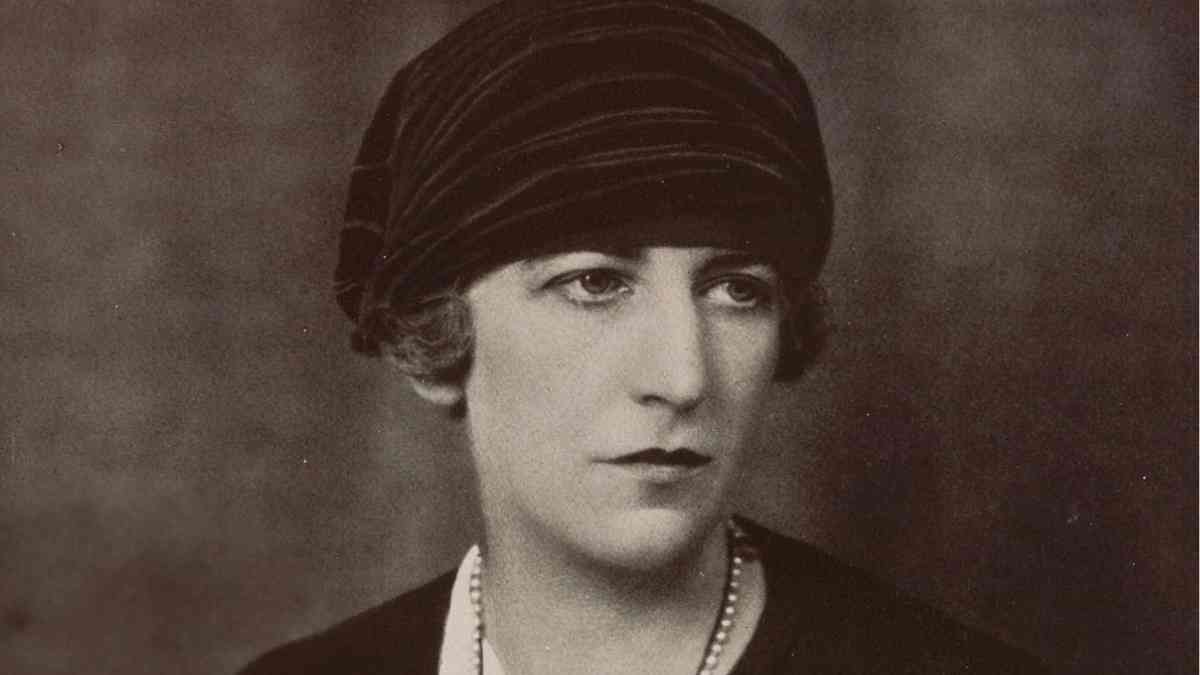Venetia Stanley: The Woman Who Held the Ear of a Prime Minister

In the grand halls of Edwardian Britain, where aristocrats dined under chandeliers and politics shaped the future of empires, one woman stood uniquely positioned — not in Parliament or public office, but in the private, handwritten thoughts of a Prime Minister. Venetia Stanley, a name scarcely heard outside history circles, played an extraordinary role during a critical era. Through a remarkable correspondence with Prime Minister H.H. Asquith, she became the silent confidante of British leadership on the eve of the First World War.
The Aristocratic Roots of Venetia Stanley
Born Beatrice Venetia Stanley on August 22, 1887, she was the youngest daughter of Edward Lyulph Stanley, the 4th Baron Sheffield, and Mary Katherine Bell. Her family belonged to the upper echelons of British aristocracy, closely connected to political and intellectual elites. Venetia grew up amid privilege, educated, confident, and curious — characteristics that would later shape her influence on one of Britain’s most powerful men.
The Edwardian era saw a blend of rigid social structures and emerging modernity. For women like Venetia, the world offered both the comfort of status and the constraints of expectation. Yet, she would break from the passive role many expected of women of her rank.
The Coterie: A Social Circle of Change
Venetia was part of a group famously known as The Coterie, a circle of young aristocrats, intellectuals, and artists who challenged the norms of Edwardian society. They were glamorous, educated, and outspoken — often discussing politics, literature, and philosophy over long evenings. This environment encouraged Venetia’s political awareness and desire to understand the world beyond drawing rooms and debutante balls.
Meeting H.H. Asquith: An Unlikely Friendship
The pivotal chapter in Venetia Stanley’s life began when she met Herbert Henry Asquith, the Liberal Prime Minister of the United Kingdom. Asquith was 35 years her senior and already a well-established figure in British politics. Through his daughter Violet, Venetia was introduced to the Asquith household. What began as casual acquaintance developed into a deep and complex friendship.
Between 1910 and 1915, Asquith wrote to Venetia with increasing regularity. His letters weren’t brief notes — they were detailed, introspective, and often emotionally charged. He wrote from cabinet meetings, political retreats, and even from within Parliament. In total, more than 560 letters were sent, encompassing over 300,000 words.
A Prime Minister’s Confidante
What made Venetia Stanley’s relationship with Asquith so remarkable was the content of the correspondence. He revealed inner doubts about policy decisions, frustrations with colleagues, and anxieties about impending war. Venetia became his sounding board, a person to whom he could confide his deepest political and emotional struggles.
This relationship was, by all credible accounts, platonic. Yet the emotional intimacy was undeniable. Asquith’s wife, Margot, was fully aware of the letters and did not conceal her jealousy. Political observers and historians have debated whether Asquith had romantic intentions, but there is little evidence Venetia reciprocated any such sentiment. Her position was that of a trusted friend — intelligent, independent, and emotionally detached from the drama surrounding her.
Politics, Pressure, and a Secret Weapon
Asquith’s reliance on Venetia’s advice raised eyebrows in government circles. Some ministers feared her influence, especially as Britain approached the turmoil of the First World War. The fact that national decisions were being discussed with someone outside government ranks unsettled many.
Yet Venetia wasn’t merely a passive recipient of political gossip. Her replies — though fewer in number than his — reflected a sharp intellect and moral awareness. She often questioned Asquith’s assumptions, challenged his ideas, and encouraged him to consider alternative views. In a time when women were still years away from securing the right to vote, Venetia wielded an influence that was rare, if not unprecedented.
Marriage to Edwin Montagu: A Turning Point
In July 1915, Venetia abruptly ended the intense epistolary relationship by marrying Edwin Samuel Montagu, a Liberal MP and close associate of Asquith. Montagu was a rising political star, a key figure in British India policy, and also Jewish — a point of concern for Venetia’s family and social circle.
Venetia’s decision to marry Montagu shocked Asquith. He continued to write, but the frequency and intimacy diminished. Her conversion to Judaism, required for the marriage, was another radical move for an aristocratic British woman of that era.
The marriage, though politically significant, was not emotionally fulfilling. Venetia and Edwin had a daughter, Judith, in 1923, but the couple eventually lived largely separate lives. Venetia’s restlessness and independence could not be tamed by societal expectations or marital duty.
An Adventurous Spirit Beyond Politics
Even after her withdrawal from political correspondence, Venetia Stanley remained an intriguing figure. She took to flying — still a daring pursuit for women at the time — and participated in long-range flights across Russia and Persia in the early 1930s. Her intellectual curiosity led her to explore international cultures, social reform, and new ideologies.
Venetia continued to be courted by powerful men. Among her rumored lovers was Lord Beaverbrook, the influential newspaper magnate and political fixer. Though no longer in Asquith’s inner circle, Venetia retained connections to power and influence until her final years.
The Legacy of the Letters
When Venetia Stanley died of cancer on August 3, 1948, much of her correspondence with Asquith remained unpublished. It wasn’t until 1982 that Michael and Eleanor Brock compiled and released the letters under the title Letters to Venetia Stanley. The publication caused a stir among historians and political enthusiasts alike.
These letters remain a rare historical artifact. They provide a window not only into the private life of a Prime Minister but also into the psyche of Edwardian politics. Through Venetia, we see Asquith’s vulnerabilities — his indecision during the Irish crisis, his wavering stance on conscription, his private thoughts on fellow ministers. More importantly, we see the silent influence of a woman who operated entirely outside official channels.
A Symbol of Quiet Power
Venetia Stanley was not a suffragette, a politician, or a public speaker. She did not lead marches or write manifestos. Yet she influenced a Prime Minister, shaped conversations in the corridors of power, and maintained her autonomy in a world that sought to confine women to social roles.
Her story is a testament to the many ways women have historically shaped political thought — not through formal authority, but through personal wisdom, insight, and emotional intelligence. At a time when the public arena was closed to women, Venetia found a way in through the most personal of channels: the human need for understanding.
Conclusion
In the broader narrative of British political history, Venetia Stanley might appear as a footnote — a friend of a Prime Minister, a letter recipient, a socialite. But when one examines the impact she had on H.H. Asquith and the decisions he faced during one of Britain’s most tumultuous periods, her importance becomes undeniable.
Venetia Stanley was a woman of her time, but also ahead of it. She defied the expectations placed on her, navigated the highest levels of British society with intellect and independence, and left behind a legacy far richer than her aristocratic title might suggest.
Today, as scholars revisit the overlooked stories of women in history, Venetia Stanley stands out as a powerful reminder: influence doesn’t always wear a crown or hold a title — sometimes, it’s written in ink, in the quiet corners of power.



